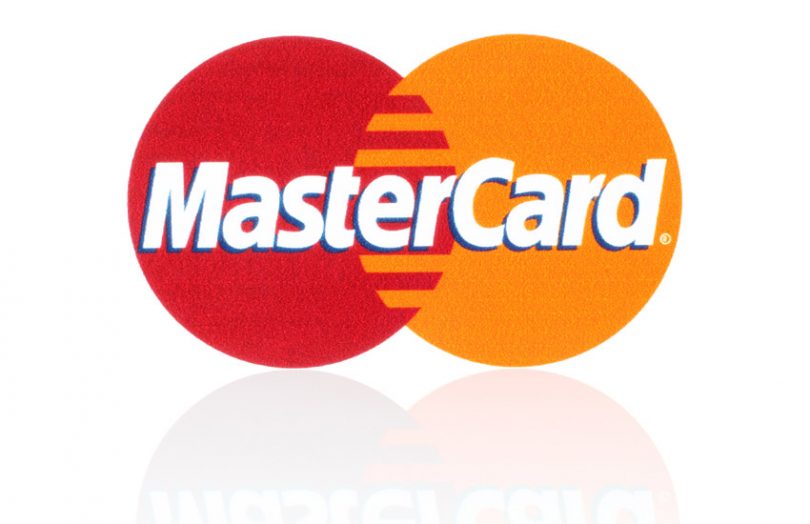Today ConsenSys announced its ConsenSys Rollups, which batches transactions to enable far higher transaction throughput on both the public Ethereum blockchain and for enterprise blockchain applications on Quorum. The solution was developed with Mastercard’s support after participating in one of ConsenSys’s funding rounds earlier this year.
Typically private chains can achieve only 300 transactions per second (TPS) and 15 TPS on the Ethereum Mainnet, whereas ConsenSys claims its rollups achieve 10,000 TPS. Several companies have developed so-called rollup solutions. Last week Polygon, which operates a sidechain on the public Ethereum mainnet, acquired ZK-rollup startup Mir Protocol for $400 million. Other examples are ZKSync, Loopring and StarkEX.
However, most rollup companies are purely focused on the public blockchain. In contrast, ConsenSys is active in both the public and the private blockchain spaces as the original developer of Hyperledger Besu. It owns Quorum, which JP Morgan founded.
“We believe many of the layer 1 and layer 2 scalability solutions will be built by the community and wanted to partner with another leader with similar goals and approach to offer our tech experience and development capacity,” said a Mastercard spokesperson in an emailed statement.
“In addition to scalability and privacy, we are working on a number of projects on digital currency, smart-contracts, and making commerce use cases work across several different blockchain networks.”
Motivations for rollups
Multiple central bank digital currency (CBDC) trials using Ethereum technology have raised the lack of scalability, so this will help address that. Micropayments are another potential application.
The popularity of the public Ethereum blockchain has meant gas costs (transaction fees) are prohibitive for most consumer and business applications. By batching transactions, they become affordable for decentralized exchanges and other applications.
“ConsenSys Rollups enables vastly more scalability in addition to strong privacy protections to both enhance solutions for existing use-cases and enable new use-cases. This innovative solution will help accelerate the building of the future of finance,” said Madeline Murray, Global Lead of Protocol Engineering at ConsenSys.
ConsenSys is keen to encourage enterprises to adopt blockchain. Given its CEO Joe Lubin is also the founder of Ethereum, there may be a preference to use the public blockchain. However, there’s also a recognition that enterprises have particular requirements. Rollups start to address the scalability issue, although currently for simple transactions, as opposed to enhanced programmability offered by smart contracts. However, that will come in the future.
If a solution like this can address scalability and privacy on private blockchains, enterprises might become more comfortable porting the same solution to the public blockchain.
How they work
Rollups use zero-knowledge proofs (ZKPs), originally used as a privacy and confidentiality solution. ZKPs enable someone to receive a response to a question of whether a fact is true or not without getting access to the underlying data. This enables batches of transactions to be executed off-chain but verified as valid using ZKP. It also means some aspects of the transaction details are kept confidential.
The transactions on a private Ethereum network become final when the batch is verified and the block is included on the chain. That could be pretty much instant for a private blockchain.
In terms of privacy, ConsenSys Rollups are partially anonymous. The operator of the batching system gets to see transaction data, and the counterparty’s identity will also be visible to the transaction participants. Once the transactions are batched and added to the main blockchain, the specific transactions are not available. However, the updating of a user’s account hash is visible.
Meanwhile, last month ConsenSys announced its second funding of the year, raising $200 million.
Today ConsenSys announced its ConsenSys Rollups, which batches transactions to enable far higher transaction throughput on both the public Ethereum blockchain and for enterprise blockchain applications on Quorum. The solution was developed with Mastercard’s support after participating in one of ConsenSys’s funding rounds earlier this year.
Typically private chains can achieve only 300 transactions per second (TPS) and 15 TPS on the Ethereum Mainnet, whereas ConsenSys claims its rollups achieve 10,000 TPS. Several companies have developed so-called rollup solutions. Last week Polygon, which operates a sidechain on the public Ethereum mainnet, acquired ZK-rollup startup Mir Protocol for $400 million. Other examples are ZKSync, Loopring and StarkEX.
However, most rollup companies are purely focused on the public blockchain. In contrast, ConsenSys is active in both the public and the private blockchain spaces as the original developer of Hyperledger Besu. It owns Quorum, which JP Morgan founded.
“We believe many of the layer 1 and layer 2 scalability solutions will be built by the community and wanted to partner with another leader with similar goals and approach to offer our tech experience and development capacity,” said a Mastercard spokesperson in an emailed statement.
“In addition to scalability and privacy, we are working on a number of projects on digital currency, smart-contracts, and making commerce use cases work across several different blockchain networks.”
Motivations for rollups
Multiple central bank digital currency (CBDC) trials using Ethereum technology have raised the lack of scalability, so this will help address that. Micropayments are another potential application.
The popularity of the public Ethereum blockchain has meant gas costs (transaction fees) are prohibitive for most consumer and business applications. By batching transactions, they become affordable for decentralized exchanges and other applications.
“ConsenSys Rollups enables vastly more scalability in addition to strong privacy protections to both enhance solutions for existing use-cases and enable new use-cases. This innovative solution will help accelerate the building of the future of finance,” said Madeline Murray, Global Lead of Protocol Engineering at ConsenSys.
ConsenSys is keen to encourage enterprises to adopt blockchain. Given its CEO Joe Lubin is also the founder of Ethereum, there may be a preference to use the public blockchain. However, there’s also a recognition that enterprises have particular requirements. Rollups start to address the scalability issue, although currently for simple transactions, as opposed to enhanced programmability offered by smart contracts. However, that will come in the future.
If a solution like this can address scalability and privacy on private blockchains, enterprises might become more comfortable porting the same solution to the public blockchain.
How they work
Rollups use zero-knowledge proofs (ZKPs), originally used as a privacy and confidentiality solution. ZKPs enable someone to receive a response to a question of whether a fact is true or not without getting access to the underlying data. This enables batches of transactions to be executed off-chain but verified as valid using ZKP. It also means some aspects of the transaction details are kept confidential.
The transactions on a private Ethereum network become final when the batch is verified and the block is included on the chain. That could be pretty much instant for a private blockchain.
In terms of privacy, ConsenSys Rollups are partially anonymous. The operator of the batching system gets to see transaction data, and the counterparty’s identity will also be visible to the transaction participants. Once the transactions are batched and added to the main blockchain, the specific transactions are not available. However, the updating of a user’s account hash is visible.
Meanwhile, last month ConsenSys announced its second funding of the year, raising $200 million.






